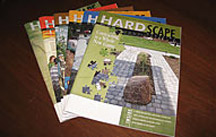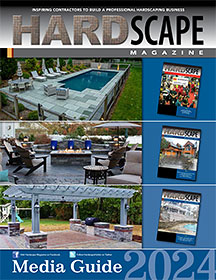Articles Written by Charles Vander Kooi
Don't Waste Time Bidding
By Charles Vander Kooi
There are several things to consider in deciding what to bid. But even if the job appears perfect for your company, don't bid it if you don't have the time to complete a thorough bid. Let me tell you a story that illustrates what can happen when you start a bid but don't finish it and turn it in.
I was helping a company bid a large project. Unfortunately, the job bid at 11a.m. on a Monday morning in a small town 2 hours from the contractor's office. That had to be the worst time I know for a bid opening.
On Friday afternoon our contacts told us there were 3 other bidders besides ourselves who were calling around and getting prices. Three other bidders had spent time and money to do a very comprehensive take-off and make all the necessary telephone calls.
Money Wasted
At 11a.m. Monday morning, we laid down a sealed bid next to the only other bid. Only 2 bids had been submitted. Do you know what I wanted to do when I found out that there was only 1 other bidder (besides raise our price)? I wanted to jump in my car and go to the offices of the 2 contractors that didn't show up.
And do you know what I would have found? I would have found thousands of dollars worth of work spent on that bid thrown in a trash can, and the reason was very likely that they simply ran out of time. They almost got everything together, but 11a.m. Monday morning rolled around and they didn't have it all together, so they threw it away without turning in a bid.
I wonder how many thousands of dollars are wasted everyday in this country from uncompleted bids that get thrown away. Furthermore, I wonder how many contractors lose something even more valuable than a few thousand dollars, namely their reputations.
Contractors on the Bidding Black List
I remember conducting a seminar in which I mentioned reputation damage over bids promised, but not submitted. I noticed an architect nodding his head so hard that I thought his head was going to come off. I sat with him at lunch that day. He leaned over to me and said:
' What you talked about this morning just happened to me yesterday. I have a very wealthy client in this city to whom I promised 4 bids for his project from the best contractors I could find. They all promised me a bid. Only 2 showed up with bids. The other 2 will never, ever see another one of my bids! '
I pride myself on very little in this industry, but on one thing I do pride myself. I cannot remember ever being late for a bid opening. I cannot remember one bid that I started that I did not finish due to lack of time.
Submitting Bids Like Clockwork
Let me give you some procedures that I have implemented to help me accomplish that track record. One of the first things I do when I get in a new job is to estimate the amount of time it will take me to bid that job.
- Will it take me 5 hours, 15 hours or 40 hours?
- Is a lot of the take-off work already done, or do I need to do a lot of the take-offs?
- Is the material to be used on the job from my normal sources or do I need to make a lot of telephone calls to find prices?
- Will the job require only my normal subcontractors, or will I need to find new ones?
All of these things go into deciding how long it will take me to bid the job. Once I arrive at that estimate, I then check my calendar to see if I have the time-or if I am willing to commit the time-necessary to bid that job. When I approach a job with that predetermined knowledge and commitment, I find that I can do a better job.
Plan Tim e for Estimating
One of the most important strengths of an estimator is organization. This is especially true when it comes to their time. I have always lived strictly by a schedule that, for the most part, is planned days and even weeks in advance.
I have always used a calendar with large pages devoted to each day. Following is a good outline to follow for your calendar.
The Estimator's Typical Day7a.m. - 8a.m. Garbage in-Garbage out
8a.m. - 11a.m. Estimating time
11a.m. - 12p.m. Garbage in-Garbage out
Lunch
1p.m. - 4p.m. Estimating time
4p.m. - 5p.m. Garbage in-Garbage out
Evening Hours Catch up estimating time
Garbage Tim e
Notice that 3 times have been set aside for what I call garbage in, garbage out . Those are times spent in answering a superintendent's questions, in receiving or making telephone calls, reading mail, and a myriad of other items that are part of a normal day. These tasks are scheduled throughout the day at strategic times; i. e., when the day begins, at the end of the morning, and before going home at night.
Estimating Tim eTwo major blocks of time are reserved in the middle of the day for estimating. During those times you should be considered unavailable, except in cases of emergency. Three hours of uninterrupted estimating time is worth a whole day filled with interruptions. Plus, if you are working on a take-off or a labor-pricing strategy and leave to answer a telephone call, you run the risk of making a mistake.
Evening HoursNotice the block of estimating time titled 'evening hours'. This should be used for catch-up or for that extra time needed to get a job bid.
With a calendar like this, you can look at the day a bid is due and work backwards to see if you have enough hours to estimate the job. If you do have the time, fill in those blocks with the name of that job and then discipline yourself to use that time accordingly.
If your calendar shows you don't have the time, then don't start the estimate. It is always better to bid a few jobs right than a lot of jobs wrong.
Check Progress as You Go
I also find that it is important to check on your progress as you're going along rather than waiting until the end. Do you know when most errors are made in bidding? They are made during the last hour before a bid must be turned in to the owner.
Telephones are ringing, prices are coming in, important numbers are found to be missing and in need of figuring, lots of multiplication and addition must be done, and the estimator is going as fast as possible, hoping to finish on time.
I have seen this very thing occur with my own eyes. I have walked into offices where I have seen estimators' eyes as big as silver dollars. Sweat is pouring off their foreheads and their hands are working the pencils and calculators so fast that smoke is rising from the paper and the machine. And they're making mistake after mistake in that final hour before bid time.
To prevent this problem, I find that it's important to check on my progress as I am going along. I always ask myself this question: ' How much work remains to be done and do I have enough time between now and bid time? ' If I don't, then I need to put in the extra amount of time necessary to complete the bid on time. I ask myself those questions long before that final hour before bid time. That way I can keep from being caught in a hectic and risky situation.
Progress-Checking Put into Practice
I remember helping a contractor finalize a bid on a large project some 30 hours before bid time. The contractor met me at the airport and took me to look at the job site. He told me that if I didn't feel like there was enough time to bid it, to just tell him so and we would all go back home. I wondered why he said that. When we got to his hotel rooms, I understood his concerns.
It was a unit-price bid with over 150 unit-price items. Bid sheets, plans, and specifications were everywhere. His people had simply started working on the bid without any plan or any idea of how long it would take. Nobody knew how much had been done or how much needed to be done. Their eyes were already as big as silver dollars and their hands were flying across the paper, making mistake after mistake.
The first thing we did was to reorganize everything and to make a unit price recap sheet. I then sat down and looked at what needed to be done and estimated how long it would take. I figured that if all of us worked throughout the entire night we would be able to have it done by the next afternoon.
We each took certain bids items and began to work on them. However, I didn't leave it at just that. At 9p.m., at midnight, at 3a.m. and again at 6a.m. I did re-checks to see if we were on schedule. That way we were able to work by a plan with confidence, without anxiety, and eventually get the job done.
Practice Estimator's Discipline
An estimator must be disciplined and use his/her time as effectively as possible. In deciding if you're going to bid this job or another, estimate how long it will take and ask yourself, ' Do I have the time? ' If you don't have the time to bid it right and in a timely manner, don't bid it. Here are some tips for you to consider.
1. First, estimate the total time you will need to prepare the bid from beginning to end.
2. Next, distribute in your estimator's calendar the hours you'll need to complete the bid. Monitor your progress and make time allocation changes if needed.
3. Set aside specific times each day strictly for estimating. Let others in your firm know you are not to be disturbed during this time period, unless there is an emergency. By adopting this 'closed door' policy, you'll be 30% to 50% more productive than if you permit interruptions throughout the day.
4. Do your telephone work (returning calls, answering messages, etc.) at set times. I suggest you do this in the morning before you close your door, and again later in the afternoon before the close of business.
5. Use the evening hours as a 'safety valve' for those jobs which take more time to bid than you estimated. With practice, your time estimates will become increasingly more accurate and your 'safety valve' sessions less frequent.
In bidding, more is not always better! Without question, the most costly and wasteful use of your estimating time is that which is misspent starting a bid you won't have time to complete. How do you avoid this situation? Before you begin preparing any bid, ask yourself, ' Do I have the time to bid this job?' If your answer is ' no ,' don't start!















